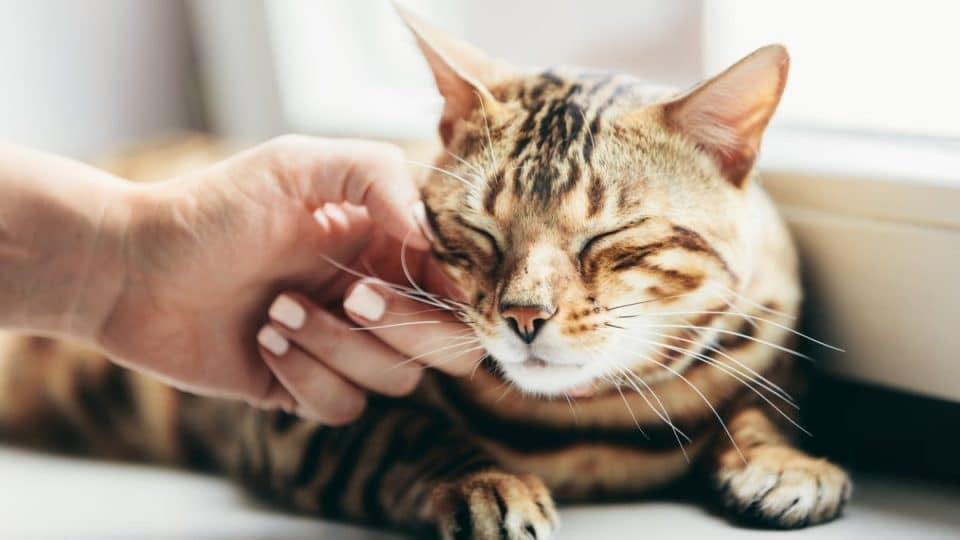Our cats are more than just pets, they are beloved members of our family. Like humans, cats have spiritual needs that require care and attention. What we think about caring for our cats is very important to the cat’s overall health and well-being. In this detailed guide, we’ll discuss several ways to ensure your cat’s mental health stays strong and healthy.
1. Understand Cat’s Behavior:
Cats are complex animals with a variety of movements to express their feelings. The first step to improving their mental health is understanding how they behave:
Purring: Cats usually purr when they are happy, but they also purr to calm themselves when they are scared or sad.
Kneading: Kneading with their paws will remind them of childhood kittens and is a sign of comfort and calm.
Grooming: Regular cleaning not only keeps you clean, but also makes you feel better about yourself. Cats brush their teeth to be close to each other and to get rid of stress.
Hide: When cats are frightened or stressed, they often run and hide. Giving them a safe place to hide can help relieve their stress.
Playfulness: Play is important to stimulate the brain and burn off excess energy.
2. Importance of Mental Stimulation:
Preventing Boredom
Boredom can lead to many bad behaviors such as overeating, excessive scratching and anger. You can avoid these problems by keeping your cat busy with toys, games and other activities that require interaction.
Make the Environment Better
Making cats’ environments more interesting is like giving their minds a place to play. Place cat shelves, scratching posts, and perches near the window so they have something to look at. To keep things interesting, you can swap toys and add new ones.
3. Interactive Play:
Get Closer through Games
Interactive games can help in two ways. They not only keep your cat busy, but also strengthen the bond between you and your cat. Using something that resembles prey, such as a feather stick, a mouse toy, or a laser pointer, you can stimulate your cat’s natural hunting urge and exercise its mind and body.
Make Games for Your Cat
Different cats like to play in different ways. Some cats like to chase balls, while others like to chase feathered things. Watch how your cat reacts to different things and adjust the way you play with him accordingly.
4. Grooming With Care:
Relaxation through Grooming
Care is not just a beauty procedure, but a means to beauty. It is also an opportunity to relax and spend time with your pet. Many cats prefer that you brush them gently so you can spot any skin problems or abnormalities.
Gradual Introduction
If your cat is not used to grooming, do it slowly at first. Start by grooming your cat briefly. You can gradually increase the time as your cat gets used to it.
5. Make Sure the Place is Safe:
How Important is the Shelter
Cats need quiet, safe places to go when they are upset or stressed. These safe places include cat trees, covered beds, and snug spots.
House with Several Cats
In households with more than one cat, competition for food and space can be stressful. Make sure each cat has enough litter boxes, eating and sleeping areas to prevent fights.
6. Cat Language:
Responding to Vocalizations
Cats talk to each other in different ways and each expresses a different feeling. Listen to your cat’s meows, purrs and hisses to find out what he or she wants and how he or she is feeling.
Try to Understand Cat’s Body Language
What cats do with their bodies says a lot. Ears pointed forward, a relaxed posture, and slow blinking are all signs of comfort and confidence. Excitement, on the other hand, is manifested in a fluffy coat, flattened ears and a moving tail.
7. Providing Interactive Toys:
Fun Puzzle Feeder
The puzzle feeder can test your cat’s intelligence and prevent it from getting bored while eating. These toys make you think and help you find solutions to problems.
Changing Toys and Activities
Cats quickly get bored with the same games or toys. Keep their minds active by changing toys, giving them new toys and changing the way they play.
8. Create Daily Habits that are Good for Cats:
Consistency and a Fixed Schedule
Regularity is good for cats. Feeding, playtime, and quiet time should occur at the same time each day. This predictability helps allay fear and make people feel more secure.
Time for Solitude and Rest
While cats need to play and talk to other people, they also need alone time to rest and recharge. Give them places where they can curl up and rest without being disturbed.
Conclusion:
Promoting a cat’s mental health is a whole person’s job, which includes understanding their behavior, providing mental stimulation and creating a cat-friendly environment. By paying attention to their emotional needs and taking care of their mental health, you can ensure that your cat has a happy and fulfilling life.
FAQs:
1. Can cats be depressed?
Yes, cats can experience depression and anxiety, usually due to changes in their environment, routine or health. Signs include drowsiness and changes in eating habits.
2. Can Indoor Cats Get Mental Health Problems?
Yes, indoor cats can become bored and anxious due to a lack of mental stimulation. Enriching their environment with toys and activities is crucial.
3. What role does social interaction play in a cat’s mental health?
Social interaction with humans and other cats is critical to a cat’s mental health. The quality time spent with you and the opportunity to play are crucial.
4. Can older cats benefit from mental stimulation?
Of course. Spiritual enrichment is good for cats of all ages. Older cats may benefit even more from it as it helps keep their minds sharp.
5. How do I know if my cat is stressed?
Signs of stress in cats include excessive grooming, changes in appetite, hiding, aggressive behavior and avoidance of social interactions.
